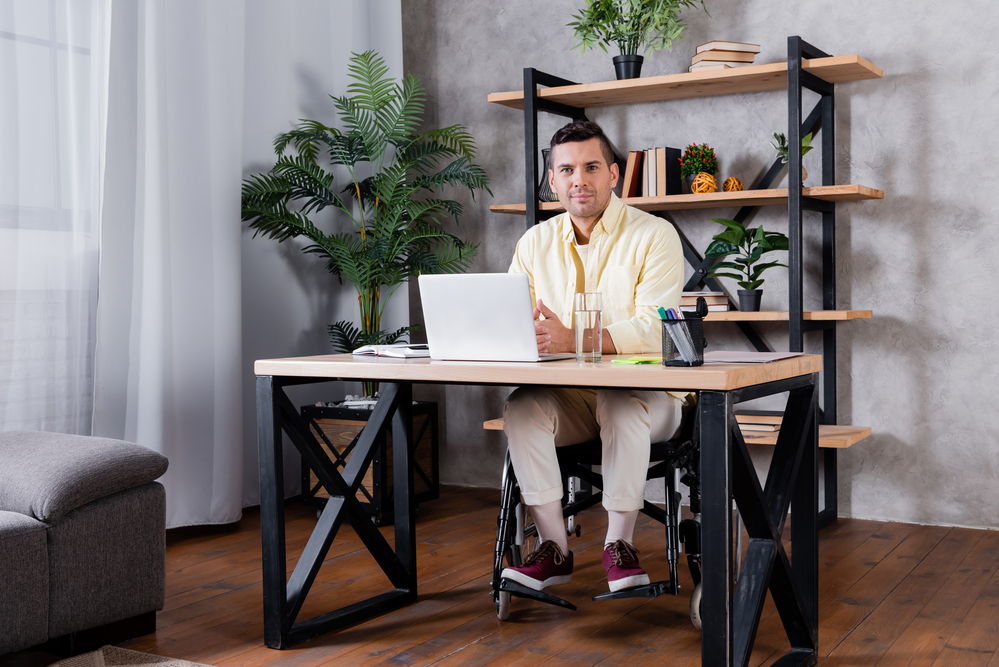
Do you use marijuana and WFH? Wait, don’t answer! Because that is something no one wants to confess to or talk about. After all, it could jeopardize your job. And open you up to some serious criticism from other professionals and colleagues. It would be bad if your boss found out too, right?
Could you guess the percentage of professionals (including remote managers and executives) that use cannabis during work hours? About 15% to 20% according to many studies. Typically, younger employees in their twenties and thirties, and predominantly men.
The sales of cannabis in 2020 skyrocketed in tandem with the number of Americans sent home to shelter in place during the pandemic. What are some of the reasons why people who WFH may use cannabis? And is it a detriment or benefit to their productivity and job satisfaction?
Some people lightly use cannabis to moderate daytime symptoms. It is something no one talks about for obvious reasons. Cannabis, like any other drug, causes degrees of impairment from mild to severe. Even experienced marijuana users can smoke the same strain and amount of weed and get a different level of psychoactive “high.”
While we are talking about the impact of cannabis on cognition or productivity, we do not imply that marijuana does not lead to impairment. It does. However, the amount of impairment someone experiences can vary depending on a number of factors:
Driving after you have consumed cannabis is the worst idea ever. You may feel alright, but the psychoactive effects of marijuana can come in waves. Twenty minutes from now, you may not be feeling as sober.
Whether you are driving into the office for a meeting, running out for office supplies, or grabbing some takeout on your lunch break; drive sober.
A recent clinical study, “Cannabis Use and Car Crashes: A Review,” was published with research from some of Germany’s leading addiction and psychiatry centers. The findings suggested that exceptionally low potency cannabis might be okay. As long as you are micro-dosing. However, moderate to higher potency cannabis and intake amounts?
You risk your safety and others if you get behind the wheel of a vehicle after you consume cannabis. And the charges for impaired driving (and injury risks) are not worth it. Call an Uber if you must go out after you have consumed even a small amount of weed. You don’t know for sure how it is going to hit you. Your risk of getting into a motor vehicle collision can go up 50% after using cannabis.

The world is not ‘okay when it comes to navigating the global Covid-19 pandemic. But for the most part, we are all doing what we can to cope. To remain optimistic that things will get better, and the scary health emergency will pass because it has taken a toll on everyone.
Last year in the United States, stress levels blew up statistically. Not surprising, right? But when you look at some of the mental health data, it paints an alarming picture. We’re stressed because of finances and unemployment, also because of bereavement and the loss of family and friends to the Covid-19 virus.
Shifting to remote work (where possible) has been a saving grace. It has allowed parents to be present at home when schools shut down. Also, it allowed skilled digital professionals to remain employed. And it reduced costs, health risks, and liability for employers while allowing them to remain operational.
But with remote work comes other stresses. It’s not a cakewalk for everyone. In households with two remote workers, conflicts were common. According to the National Law Review, by April 2020, the divorce rate had increased by 34%. And 20% of newlyweds (married four months or less) filed for divorce from their partner.
Adding to domestic tensions are tech issues and workplace isolation. Feeling disconnected to your team and your organization if remote work is something new to you. A little pot during the workday is happening. Even if no one talks about it.

Stress is one reason remote workers may be using a little cannabis 9-5. People who have chronic pain are doing it too. Remote work may help some employees who might be otherwise disabled by chronic pain. Cannabis may be helping to make them more productive.
It is important to remember that if someone has chronic pain and they got their medical cannabis card, there was a very good reason. Namely, that prescription pain medications were not working for them. Or they experienced bad side-effects from NSAIDs or opioids.
For people who have never experienced chronic pain, it can be hard to empathize. Imagine that you are sitting at your desk working. Then suddenly, someone comes and starts screaming in your ear. And you try to focus, but the screaming persists. It can be exhausting.
That is what chronic pain is like. Now, add moderate to severe pain. Either pins and needles or stabbing sensations. Painful muscle spasms. Sometimes aching in joints or major muscle groups. Back injuries and pain can make it hard to stay seated, so you get to a standing desk. And then, after an hour, your legs are aching.
Remote work gives employees the flexibility to change positions. Desk to the couch. Couch to the kitchen counter (standing) and back to the desk? Quite common. Applying a heating pad or ice pack? Much easier at work (when you don’t have coworkers staring at you). And since you aren’t driving? A small amount of cannabis to dull the pain.
Are American remote workers getting stoned, putting their feet up, and watching television on company time at home? Hardly. Sure, there are always going to be exceptions to the rule, but most people are grateful for the work-from-home accommodation. And they are actually working harder than ever, according to some studies.
Robert Half is one of the country’s largest recruitment and employment agencies. In 2020, Robert Half released a survey based on a sample of 2,800 Americans. The survey found that 70% of professionals that transitioned to remote work because of the pandemic now work weekends. And 45% say they constantly work longer hours than they did before they worked from a home office.
Going back to the impact of stress on American workers, longer hours while working from home seems to be a contributing factor. The study found that people were working longer hours for two reasons. First, they felt there was no disconnect between work and home hours; it blended into an ‘always-on culture of work from home. The work/life balance had been disrupted.
The second reason that Americans were putting in the extra hours was because of fear of unemployment. The pandemic briefly saw a number of sectors reduce staff to weather the economic adversities. Employees were scared.
Some started sacrificing their personal time in an effort to increase their value to the employer and job security. The trend of overworking for remote employees has led to a crisis of burnout in the United States.
Did you know that you can use low potency cannabis and have very few psychoactive effects? There is a prevailing myth that everyone that uses cannabis has one goal: get high. And when you think about the recreational use of marijuana, you are right. Friday or Saturday night? That could definitely be the plan for a cannabis user.
But not during the workday. And anyone who has experience using cannabis for symptom management learns over time how much to take for mild relief. Just like using over-the-counter medications or topicals, you learn what works.
Employees that use medical cannabis know how much is enough to get a certain amount of relief from their symptoms during the daytime, which can mean using a lower potency strain or cannabis product. It won’t numb all the pain but make it comfortable and tolerable so that the WFH employee can concentrate. And be productive.

Absolutely no one who wants to stay employed wants to risk being stoned on an impromptu Zoom call. Your team sometimes knows you better than family; they would tell if you were impaired. That joke your boss told wasn’t THAT funny. Or was it? Wait… do you have perma-grin?
Myths about WFH and cannabis use are greatly exaggerated. Most people use exceedingly tiny amounts. Or supplement with clinical-grade CBD (cannabidiol is non-psychoactive) with inflammation-fighting terpenes for daytime use.
It is easy for Managers to tell if an employee’s productivity declines. Colleagues and team members will also notice. And people who WFH know that, so they govern their use of medical marijuana during the workday very carefully. If they like their job, anyhow.
And don’t forget, some of the world’s most successful business leaders and entrepreneurs admit to using cannabis to enhance productivity, including Richard Branson, Jay-Z, and even Martha Stewart. You wouldn’t call their professional performance impaired by cannabis.
Productive cannabis use is not an oxymoron. And it has always existed. However, the evolution of the WFH movement (necessitated by the pandemic) is bringing it out of the closet, so to speak. Where we might understand it as a way to make people more productive from home and retain employees with lower absenteeism, allowing for non-disruptive cannabis use for symptom relief during working hours.
Featured Image: Deposit Photos
No Information on MarijuanaDoctors.Com should be used to diagnose, treat, prevent or cure any disease or condition. You can view our Full Disclaimer here.